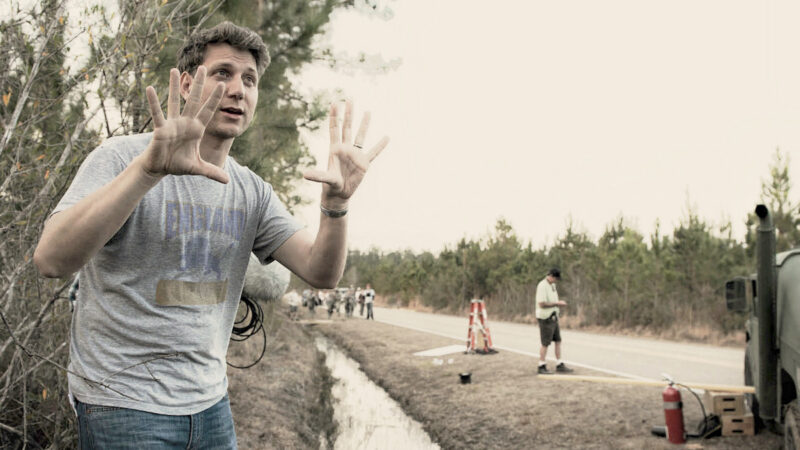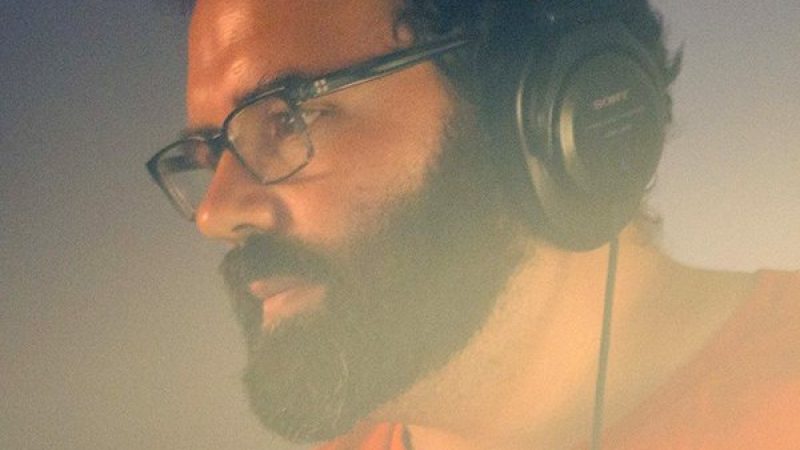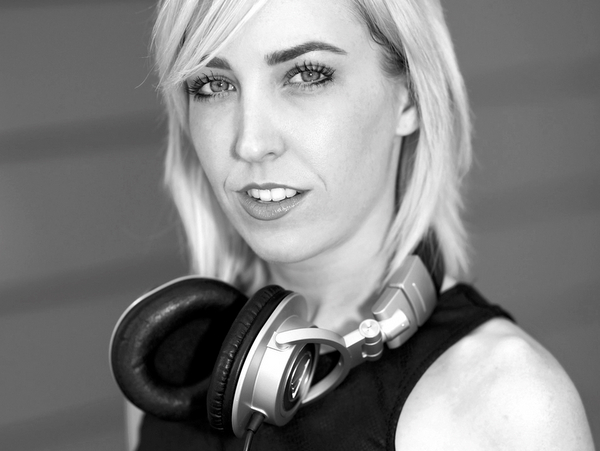
I’ve been performing for as long as I can remember, and it wasn’t always on a stage or in front of a camera. I was that annoying kid at Disneyland that didn’t see a group of strangers waiting in line for a ride. I saw an audience. Wherever I was, whoever I was with, I was always putting on a show. I had a pretty big imagination as a kid. My dad has always been really into music and that had a huge impact on me growing up. He would pick me up from school and we’d listen to everything from The Rolling Stones to The Smiths. I used to get lost in the music and create imaginary characters in my head and act them out in the back seat.
My parents realized early on I wanted to be a performer and put me into acting classes. I was lucky enough to earn my SAG-AFTRA card when I booked a Sprint commercial and even though I was just background at the time, I loved every minute of it. Soon I started auditioning for community theatre and when I was 11, I landed the lead role as “The White Rabbit” in a local production of Alice in Wonderland. I remember crying because I wanted to be Alice so bad, little did I know this role would ignite a spark in me and forever change my life. The part was unique for two reasons.
The lines were very manic and over the top and the solo was a jazzy, almost blues number that allowed me to show my vocal range. I found my love for comedy and my passion for singing and realized I wanted to be an artist in every aspect of entertainment.

indieactivity: When did you start to study acting?
Desh: I’ve been fortunate enough to have the support of my family which I have never taken for granted. I can’t imagine chasing this dream without them cheering me on every step of the way. Despite the odds and how long my journey has been, they’ve always told me I can do anything and have never doubted my abilities. I think that’s contributed to my drive and overall confidence. I knew it wasn’t going to be easy, but they always remind me what I’m capable of and tell me I can do anything I set my mind to. I’ve also had some incredible mentors and teachers over the years that really contributed to my journey. They saw something in me and encouraged me at a time I truly needed it.
I never really fit in at school and I had trouble making friends. It wasn’t until I was accepted into the Music and Theatre conservatory at OCSA – Orange County School of the Arts where I trained in voice, acting, music theory and hip hop, that I found myself among creative, artistic and eccentric kids like myself. A great teacher can really inspire you and help shape your future. I was lucky enough to have that. But once you’re no longer in school, that kind of goes away. At least it had for me, until I discovered About the Work Actors Studio, where I’m currently studying. I first met Murisa through a Conservatory workshop at SAG-AFTRA and was immediately drawn to her energy and passion for the craft. She communicates with actors in a way that they truly understand constantly finds ways to push our boundaries, challenge us and bring out our best work. I’m blown away by the level of talent I get to work with. These artists continue to raise the bar and inspire me and to witness each person learn and grow every week is truly a gift. It’s so refreshing to be back in a community of creative people and have a mentor that sees something in me and continues to motivate and inspire me.
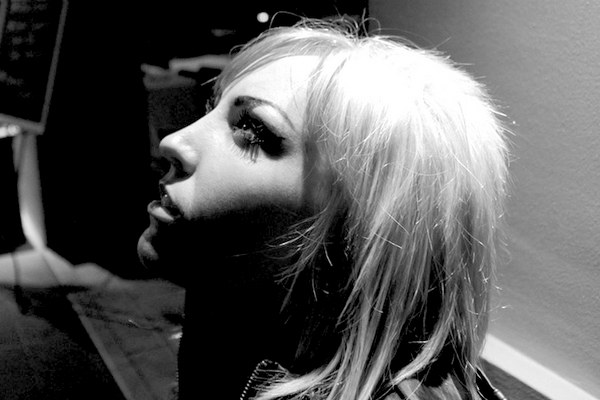
indieactivity: What acting technique do you use?
Desh: Since studying with Murisa Harba, I’ve been using The Chakra technique and it’s been an absolute eye opener for me as an artist. I’m also a screenwriter and although I got my start in theatre, I’ve always had a passion for indie films and shows that have a unique, compelling story and are strongly character-driven. Character arcs are so important in storytelling. It’s something I try to be really conscious of in my own writing.
You want to be invested in the characters initially, but they need to have somewhere to go. In Scene Study, we focus on what our character is feeling, what makes them say what they say or do what they do, and Where does the scene start? and Where does it end? Our craft is all about telling a story and sharing an experience. Sure, the lines might be memorized, but the connection needs to be real and it’s how you get there authentically that makes the difference. Using the chakras allows you to tap into that energy in the body and trigger those emotions when you need to.
I’ve always been jealous of actors that can “cry on cue”. Now I’m learning there’s actually a way to access those emotions, allowing you to free your mind and just be present in the moment, allowing for a genuine connection which translates to a compelling scene.
indieactivity: Do you take courses to improve your craft?
Desh: I’m always looking to improve my skills, think outside the box, step out of my comfort zone and challenge myself. I think as artists, it’s imperative we never stop honing our skills and working on our craft. I’ve realized you can learn just as much observing your peers as you can by participating in class when you’re surrounded by like-minded people that are truly passionate about the work. You end up thriving on each other’s creative energy.
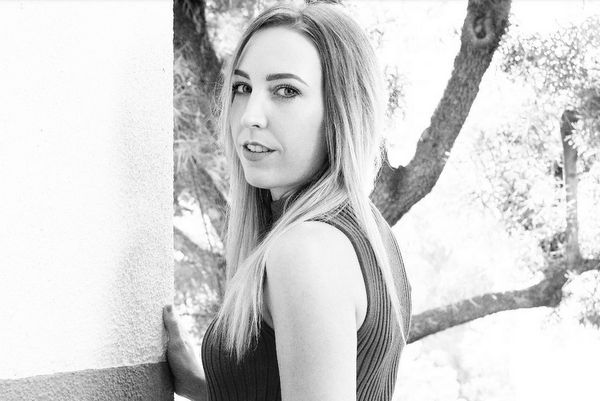
In class, we do several warm up techniques that help in our scene work. I love improv because you’re forced to think on your feet and be present in the moment. You don’t know what’s coming so every reaction is authentic. In another one of my favorite exercises, one of us is given an arbitrary line of text and a relationship and situation we need to convey to our partner through our eyes, tone and body language.
I think that’s why sometimes on paper you can have an incredible script and yet the scene still falls flat. The words on the page don’t mean anything if there’s no connection.
indieactivity: What acting books do you read?
Desh: Do scripts count?? One of my all-time favorite scripts is Lost in Translation by Sofia Coppola (also one of my top 10 films). Now that I’ve seen Call Me by Your Name, I’d like to read the original novel by André Aciman. I read way more scripts than books, but I did recently purchase Save the Cat by Blake Snyder, following a recommendation. It claims to be the last book on screenwriting you’ll ever need. I mainly write for TV and indie films so I wasn’t sure this book applied to me because I like to tell stories that are out-of-the-box and not the norm, but as my teacher put it, “you have to know the rules in order to break them”.
indieactivity: How do you keep fit as an actor?
Desh: Mentally, I feel like I’m in an actor’s mindset 24/7. For me, it’s one of those creative outlets you can’t really shut off. Especially when I’m in the middle of writing a script (which I currently am), I’m always thinking about how my characters would react to my surroundings and how situations I encounter throughout the day would affect them and the choices they make. I also watch a LOT of TV. I get so incredibly inspired by shows and films. The writing, the characters, the directing choices and of course, the actors.
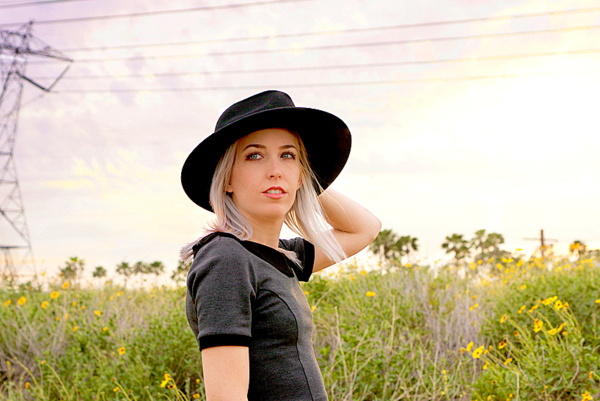
When an actor really impresses me, I’ll jump on IMDB and check out a bunch of their work. I usually end up writing a character with them in mind later in one of my scripts. My dad and I are huge indie film buffs so we seek out independent films and try to see them in theatre and support them as much as possible. I really want to start going to more film festivals. I’d love to connect with more people that share my love for indie cinema.
I also make a point to research anything and everything centered around film, specifically independent films and films written and directed by women. I love that right now there seems to be a huge shift in the industry and now more women than ever are getting hired in every aspect of film. That’s so encouraging, especially for someone like me that wants to write, direct, and (hopefully) star in their own work. As for physically… I eat well 90% of the time, aim for 8 hours of sleep a night and I try to work out at least 4 or 5 times a week. It’s another one of those mental things that just makes you feel like you’re on the right path. I’ve personally found that being physically fit usually transitions into being mentally fit. Maybe it’s just the positive state of mind but hey, whatever works, right? Oh, and I’m trying to be better about drinking water. I consume an insane amount of coffee so staying hydrated is also really important.
indieactivity: When you’re offered a role, what do you do next?
Desh: When I first get a script, I read through it like a book, so I can envision how it would look if I were watching it on screen. Next, I read through the dialogue. Each time the other character says something, I jot down in parenthesis how it makes my character feel. Then I’ll say my next line with that thought in my head. It ends up being way more authentic because we’re reacting off what’s actually happening in the scene and responding based on what we’re getting from the other person, not just the text. Again, all great techniques I picked up in scene study.
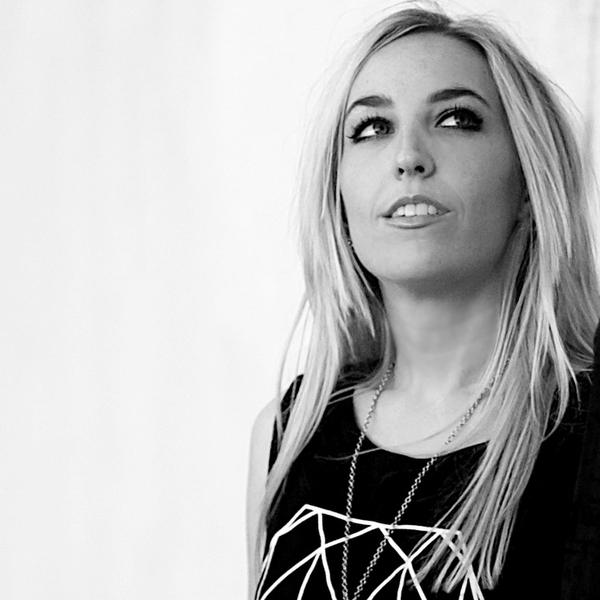
When it comes to auditions, I like to be as knowledgeable as I can about the work. I usually research the director or the writer and their previous credits. The more you familiarize yourself with what you’re working on, the more prepared you’ll be and the more comfortable you’ll feel in the room. As for memorization, I definitely memorize sides much faster when I run through them with my partner, VS trying to go over them on my own. A sheet of paper doesn’t give you much to go off of. I like to play off people, not the page.
indieactivity: How do you create a character from a script into a person?
Desh: I think it’s a mix of what first comes to mind, your real-life experiences and what you’ve witnessed other actors do that worked. Coming up with a backstory really helps. Lately I’m focusing on a new approach and it seems to be working. I think being transparent is really important, but you also need to bring yourself into that work. I’m trying to bring more of myself into my characters.
indieactivity: How do you stay fresh on a production set?
Desh: Music is something that I personally cannot live without on set. Whether I’m the actor, the writer or the director, (or all three), I need to immerse myself in music that fits the mood of the scene and how the characters are feeling. Staying in that mindset really helps me stay mentally present and connected to what’s going on. I use this same method when I’m working on a script. I honestly can’t write any other way. I’m not someone that can get “burnt out” on a song.
When I find a song that completely encompasses the mood or tone of a scene I’m writing, I listen to it on repeat. Sometimes for hours. It keeps me in tune with the characters and their emotions and really helps me with dialogue. Once I have a clear vision of what needs to happen, and I find a song that helps tell that story, the scene sort of writes itself. When I start directing, I want to apply that same method on set. You want your actors to feel comfortable and you need them to let go and trust you and be present in the moment and true to the characters. Music has such an incredible effect on people.
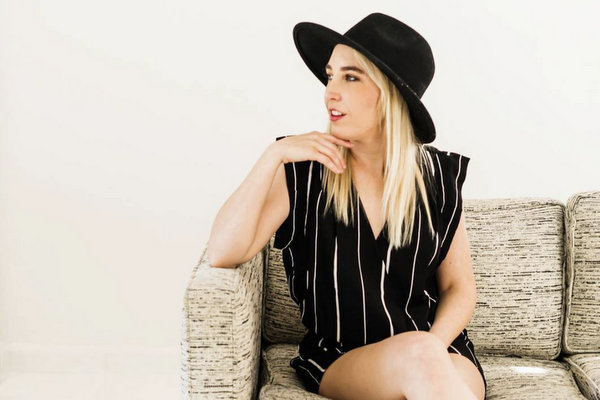
For me, songs have always seemed to find me at certain points in my life and I relate to them on such a powerful and personal level. I think music is such a useful tool in our industry, particularly in storytelling and channeling emotion. Actions speak louder than words. In my favorite films, especially indies, subtext is everything. It’s the beats between. It’s everything the characters aren’t saying.
In real life, we often use music to cope with our emotions. The difference is, if we’re in a good mood, sure you can throw on a feel-good song and blast it to your heart’s content, but you’re already satisfied, you don’t need it. When you’re in a melancholy or solemn mood, sometimes you NEED that song with the descending chords and the gripping lyrics that resonate with exactly how you’re feeling. I want to do that in my work. In my scripts, I like to show how the characters are feeling rather than saying it. Music moves people. Never underestimate the power of a great soundtrack.
indieactivity: Describe a memorable character you played?
Desh: I have a very outgoing personality and I’m never afraid to make a fool of myself. I’m not sure if that’s affected my work, but I tend to get cast in the quirky, comedic roles, especially back when I did theatre. My favorite role has to be “The White Rabbit” in Alice in Wonderland. The first production was in 1999 and I actually reprised my role in a later production in 2006. As I mentioned earlier, this is the role that made me realize I wanted to perform for a living. It also sparked my passion for singing. I’m a singer-songwriter and I’m also the lead singer and front-woman of the electro-hip hop duo My Lucky Vice.
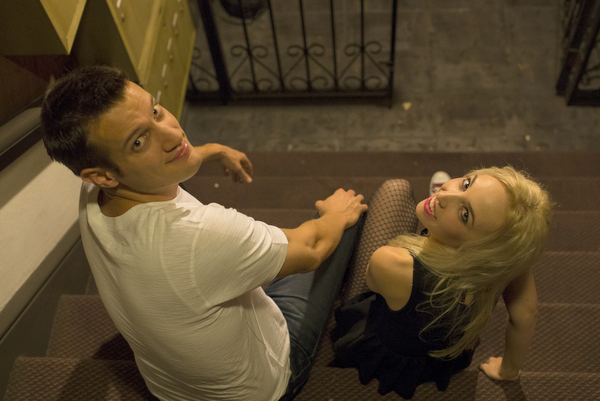
indieactivity: Explain one creative choice you took on set?
Desh: I’ve learned the more you can raise the stakes in a scene, the more your character will fight for what they want to achieve. Always choose the strongest choice. Sometimes that means playing the opposite from what the text reads. For example, let’s say your character just found out their significant other has been cheating on them. You already know that your character is hurt. That’s a given, so the lines already read angry, upset, resentful. In real life, we don’t always act the way we feel on the inside. What if your character tried to survive it What if you tried delivering the lines calmly and connecting more through your eyes, deciding when to look away and when to look directly at them.
Recently I was doing a comedic scene but I was playing it way too safe and it was falling flat. My character was calling my friend a psychopath because she decided to move in with their boyfriend and she was about to leave sad single me alone. The director suggested raising the stakes. What if I relied on my friend so much, I literally couldn’t deal with her leaving me? For my character, this was the end of the world. What if I was calling her the sociopath because I was the one acting like the psychopath? In comedy, bigger is almost always better. In our scene, my friend was “the straight man” so the more over-the-top and ridiculous that I was, the more we played off one another and the funnier the scene became.
indieactivity: What do you want most from a director?
Desh: I think the best directors have a clear vision for what they expect and know how to communicate that to the actors, but still allow them to bring their own thoughts and creative choices to the character. It’s a special kind of relationship. That’s the type of director I want to be. Trust is so important. You want your actors to trust and respect your vision, but you want them to know you trust and value their instincts.
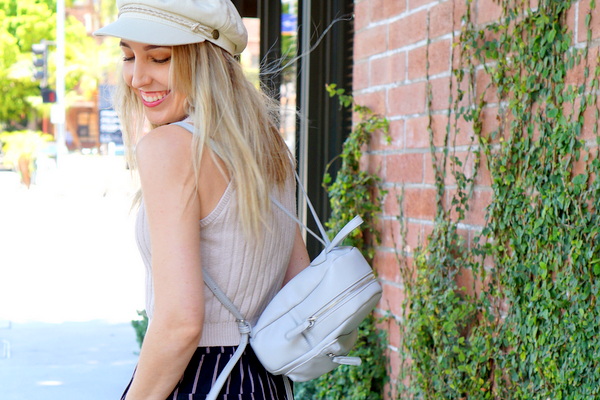
My band, (My Lucky Vice) just filmed our first music video and we used a director we’d never worked with before. We had a pretty ambitious story we wanted to tell with our song Big Dreams. I had a storyboard for which shot I wanted where and everything narrowed down to the second and despite me being so meticulous, he did an incredible job bringing our vision to life. I’ve worked with some amazing directors but now I’m really looking forward to taking the reins and filming and editing my own work.
indieactivity: What actors do you long to work with?
Desh: The list is pretty long… there’s so many incredible actors out there that I would love to work with. I am going to answer this in two parts. If I could go back in time, it would be Alan Rickman. He will always be my all-time favorite. He was such a compelling individual. He truly loved the craft and took immense pride in his work. His voice was so unique, and he could deliver lines like nobody else. He’s probably inspired me more than anyone in the acting world. I will miss him forever. Presently, I would love to work with Bob Odenkirk. Saul was my favorite character in Breaking Bad, so you can imagine how excited I was when I heard the rumors they were making a Better Call Saul spinoff.
Breaking Bad was so intense but Better Call Saul is more of an indie film on Jimmy McGill’s life and how he transforms into the Saul Goodman character. I love the way Bob Odenkirk approaches roles. He’s extremely authentic which really makes every character he plays so believable as a real person. I wrote my first feature film with him in mind to play the father. It’s an indie coming-of-age dramedy that’s heavily musically influenced with a unique storyline and compelling characters. I would love to somehow get him a copy of the script. I think it’d be right up his alley. I know that’s pretty ambitious of me, but I honestly think if he gave it a read, he’d want to be involved. I wrote another lead character in that same film with for Milo Ventimiglia. I think as a writer, you always have certain actors in mind.
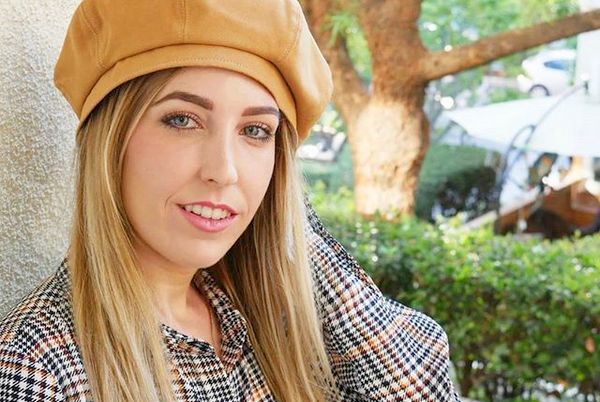
You create these characters and this story, and it becomes your baby. For me, it’s crucial to cast actors that not only bring your characters to life, but also bring their natural essence to the role. I have a “wish list” for every project I work on. I’m writing a series right now and knowing my (wish list) lead actors’ strengths and what they’re capable of has definitely played a factor in some aspects of character development.
indieactivity: What advice would you give to actors?
Desh: Surround yourself with people with the same aspirations and goals as you. These are the people that will motivate you, and keep you driven. Celebrate each other’s successes and build a connection with every new person you meet. Don’t dismiss a small short or an unknown director. Remember that everyone deserves a chance, and everyone started somewhere- just like you. Build your resume, one credit at a time. These small budget films and unknown directors are the next generation of filmmakers and building these relationships early helps everyone involved. Having positive people in your corner and a solid support system are so important.
My sister is my rock. No matter how crazy or far-fetched my ideas are, she’s always there to listen and give her honest input. Find someone you can bounce your creative ideas off of. Dream big. Be your biggest fan. Root for yourself when no one else will. Take risks. Don’t be afraid to put yourself out there. This industry is all about who you know and if you’re like me (and you don’t know anyone), you have to make your own luck, create your own opportunities and be someone they can’t ignore.
Some great advice I once got was, “Stop trying to convince everyone you’re great. Do the work and the people will follow.” It’s disheartening but very true. I’ve learned you really have to prove yourself before anyone will pay attention to you. Being aware of this has pushed me that much more. Keep creating. Let your work speak for itself. I really believe there’s room for everyone. You just have to find a way to break through the noise and stand out.
indieactivity: Briefly write about your career?
Desh: I started acting when I was 10. I got my first guitar and started writing songs when I was seventeen. I’ve written probably close to 200 songs. It’s impossible to choose between being a singer-songwriter and singing in a band. They’re completely different but I’m passionate about both. My approach to songwriting is similar to how I write my scripts. I write songs that tell a story people can relate to, but I try to do it in a way that hasn’t been done before. I want my words and my stories to motivate and move people, the way my favorite songs and films have impacted and inspired me.
It’s not about fame and fortune. I think most artists just want to be able to make a living doing what they love. There are so many talented actors out there that aren’t working. If you’re not finding the roles you want, you have to create your own work. So that’s what I’m doing. This year I plan to shop my series to networks and new-media platforms.
#TheFutureIsFemale #FemaleFilmmakers #FemaleFilmmakersEveryday #screenwriting #screenwriter #actor #director #indiefilm #series #pilot #episodes #actor #indiefilmmaker #indiefilms #independent pic.twitter.com/TOGcAOEcRs
— DESH
(@moredesh) March 10, 2018
indieactivity: What is the trait you are most proud of?
Desh: If I had to choose one thing I’m most proud of, I think I would say that I’m fearless. I know the odds are against me. I’ve heard how impossible it is to “break” into this industry by everyone you can imagine. I’ve been told “no” so many times, I could write a book. But knowing that doesn’t change anything for me. I am a very artistic and creative person by nature.
I feel things very deeply, I’m extremely passionate, and like most artists, I have a constant need to be creating something and when I’m not satisfying that need, I go crazy. No amount of doubt or discouragement is going to change that. Remember that every No brings you one step closer to your Yes. Fears are only fears until you conquer them. Obstacles are only obstacles until you find a way around them. My determination always outweighs my fear. Don’t be afraid of rejection. Don’t be afraid to try. Be afraid of regret, because there’s nothing more terrifying than not giving it everything you’ve got.
indieactivity: Any other advice?
Desh: Remember that everyone’s path is different, and comparison will kill you. Some people have connections, some people are in the right place and the right time and some of us are meant to wait. I’ve wanted this my entire life and chasing this dream has definitely had its ups and downs. It’s impossible to stay positive all the time. You’ll have moments where you’ll feel discouraged and you want to give up. Just know that you’re not alone. Everyone always tells you to enjoy the journey, and I struggled with that for a long time. I didn’t expect instant recognition or success over night but I didn’t realize how unwavering it would be. As I’ve gotten older, I’ve made a conscious effort to learn from my past, focus on my future and appreciate every roadblock and setback along the way. My mom reminded me the other day, if I would have found success early on, I wouldn’t have met the people that I have in my life today, nor would I be writing the things that I am. Those experiences have made me who I am and without them, I wouldn’t be in the same place creativity that I am now. I think when you want something so bad and your goals feel so far away, it’s easy to get lost and intimidated with the things in your life you can’t change.
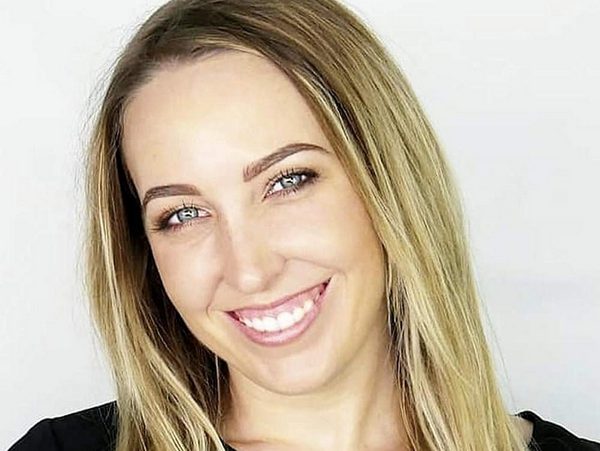
My friend always says life is 10% what happens to you and 90% how you respond. It’s only now this notion has started to resonate with me. I’ve realized, when you’re satisfied creatively, it’s such an incredible high and that feeling alone can be enough to push every negative doubt in your mind aside and fuel you with immense optimism and confidence. My journey hasn’t been easy, and it’s far from over, but it’s been inspiring every step of the way. Focus on the things in your life you CAN change. It starts with knowing your worth and knowing what you’re capable of. See it. Be it. Achieve it. Be your motivation. Be your rock. Be your biggest fan. Be the change you want to see in yourself. Be bold. Be you. And go make it happen. The proof is in the persistence.
Follow DESH on Social Media
Website
IMDb
Facebook
Twitter
Instagram
YouTube
LinkedIn
Pinterest
Soundcloud
The Key Facts Behind How Jeff Nichols Made The Indie Hit MUD
Jeff Nichols gives himself directorial challenges to master on every project.
In Conversation with Michael Oblowitz Director of Confidential Informant
Confidential Informant stars Mel Gibson, Dominic Purcell, and Kate Bosworth

